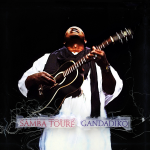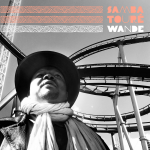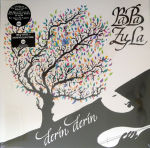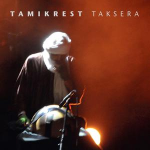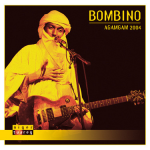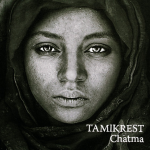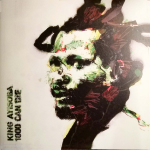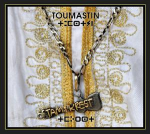SAMBA TOURE
Gandadiko
[engl] Samba Toure’s previous album Albala was recorded during the fear-laden atmosphere of 2012, when northern Mali (including his ancestral village of Diré) had succumbed to sharia law and radical Islamist control and Bamako, his adopted home, still reeled in the chaos of the recent military coup.
Albala received widespread acclaim and was rightfully recognized not only as the best album of Samba’s career but also as an undeniable musical statement about the human toll of war and political crisis. Samba had spent years honing his artistry (including stints playing with Malian blues master Ali Farka Touré and Kora genius Toumani Diabate) and Albala signposted a mature artist, full of sonic imagination and narrative fire.
Gandadiko, the title of Samba’s potent, diverse and ambitious new album, translates from his native language Songhai as: “Land of Drought” or “Burning Land.” The title seems to indicate a return to the dark textures that marked Albala but in fact Gandadiko is a more complex story than that.
Philippe Sanmiguel, a record producer living in Bamako (Anansy Cissé, Mariam Koné) and Samba’s producer for both albums, provides the details:
“One thing I’m sure of is that we didn’t want to do a second ‘Albala’. For Samba that album was maybe a little too sad and he wanted something closer to who he really is: hopeful. So the challenge was to have something as strong as ‘Albala’, but with more variety in the rhythms and moods and colors. I think the album sounds musically less dark, it’s more danceable and up-tempo, but, sorry Samba, it’s not entirely a joyful album. Tension, troubles and danger are still there in many of the songs.
The musical moods and textures found on Gandadiko often play against the moralistic, reflective and at times anguished tenor of the lyrics. For example, Touri Idjé Bibi (Black Fruits) breezes along with a straight-ahead, infectious dance groove, punctuated by soaring backing vocals. The hopeful sound that Samba had originally sought seems to have been found. But the final lines of the song are pointed and cautionary:
Oh earth, forgiveness, oh river forgiveness,
Everyday we offend you.
The songs on Gandadiko are framed by a restless eclecticism.
Samba’s guitar playing has never been so anxious, exploratory and rock and roll and his voice has never been as smooth and relaxed. Samba wants to be many places at once and the accomplishment of Gandadiko is that by successfully navigating these sorts of “contradictions,” Samba’s artistry has reached an even higher level.

